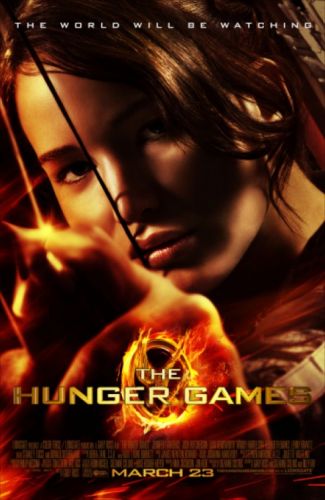
KEYSTONE PIPELINE: U.S. Pays Foxes To Assess Henhouse As Delicious
March 25, 2013
THE BANK OF VERMONT
April 9, 2013Hunger Games: Vermont As Mockingjay


Let’s be clear: Suzanne Collins’ 3 volume “Hunger Games” trilogy is among the most disturbing young adult fiction ever to occupy elementary school library shelves. And?! “Hunger Games” raises more provocative questions about the nature of the human condition at this particular moment in world history than any fiction I’ve read in a long time. And yes, I am including Harry Potter, the Dragon Tattoo series, and Unbroken in the mix.
I first discovered Collins’ “Hunger Games” books 2 years ago, when my daughter’s 5th grade teacher (a truly gifted educator we’ll call “G”) emailed Kate and me to say that Anneka was bringing home a book called “The Hunger Games.” “I really recommend that you read this book,” G suggested. “It is eye-opening, and contains some mature themes and disturbing scenes.”
Agreed. Always good to know what stories your kids are putting into their heads.
So. Let’s see. Teens killing other teens in a nationally televised gladiatorial-like spectacle/pageant for the forced amusement of the oppressed masses and pampered few in a fictional dystopan future? Check. That summary alone is enough to turn many readers’ stomachs – why would anyone subject themselves to such gratuitously disturbing storytelling, especially (as one friend told me) when the present is troubling enough?
And yet, “Hunger Games” is about so much more. Collins’ fictional world of Panem (“bread”…and circus?) is a world of kleptocracy, in which the few denizens of the Capitol (ruled over by Donald Sutherland’s softly sinister President Snow) live in luxury at the expense of the outlying twelve districts, where food and energy are scarce, basic needs are barely met, and Capitol “Peacekeepers” (Collins is clearly an Orwell fan) control latent rebellion through fear, force, and the annual Reaping, which harvests potentially rebellious two children from each district by lottery to compete in “The Hunger Games” – kiddie blood sport broadcast repeatedly on ubiquitous screens strategically stationed all over Panem. “Happy Hunger Games,” says Capitol poster gal and shiny happy publicist Effie Trinkett, “and may the odds be ever in your favor.”
Charismatic young actress Jennifer Lawrence plays mine daughter-turned-hunter Katniss Everdeen of District 12 (Appalachian country – her father was killed in a Seam explosion), who courageously volunteers to replace her unluckily chosen younger sister Prim as a “tribute” to compete in the “Hunger Games.” Spirited away on a high speed tram, Katniss travels to the Capitol to train and then compete in the high-tech arena, while struggling with friendship (two young men – Peeta and Gale – are in play here), loyalty, and survival itself. Mentored by a drunken former Games winner named Haymitch (Woody Harrelson, doing his thing) and coached by a sympathetic fashion designer named Cinna (a surprisingly good Lenny Kravitz), Katniss emerges by Games’ end as an unlikely heroine – the Mockingjay – of what may grow into a nascent rebellion against Capitol authority (read book #2 – “Catching Fire” – for more).
The movie is fantastic, trading Collins’ “first person” book narration for a quick-moving plot and surprisingly sympathetic characters. Watching Katniss and Peeta emerge as shrewd, savvy, strategic and ultimately compassionate dissidents who manage to successfully short-circuit the Games while saving their own lives is inspiring. Kids killing kids is disturbing, but even more so is the recognition among astute observers that the spectacle of the Hunger Games – adult viewers, fat and happy, who immerse themselves in the twists of plot, turns of character, corporate sponsors, smarmy silver-tongued announcers (thanks, Stanley Tucci) and bets on the bloody outcome – is not too far off from the way corporate commercial media events – so-called “reality TV shows,” sporting spectacles, and yes, political campaigns – function as “bread and circus” for the screen-saturated masses in our own time.
But “Hunger Games” is about a dystopian future, right? If you say so. But, in a world where most of us play the role of screen-soaked spectators watching climate change and Peak Oil debates point to our civilization’s emerging 21st century need to “power down,” and US-based corporate and political elites ramp up their global geostrategic conflict for the world’s remaining fossil fuel energy and natural resource reserves, “Hunger Games” reminds us that survival skills – physical fitness, emotional resilience, intellectual toughness, and collaboration – will matter more and more moving forward. Not just for our kids, but for us all.
And, as the US of Empire continues its lumbering steps towards collapse, Vermont stands uniquely poised to be the Mockingjay, those who lead us, by example, towards a more compassionate and humane decentralized future. “Happy Hunger Games, and may the odds be ever in your favor,” Vermont.
Share this:
- Click to print (Opens in new window)
- Click to email a link to a friend (Opens in new window)
- Click to share on Twitter (Opens in new window)
- Click to share on Facebook (Opens in new window)
- Click to share on Reddit (Opens in new window)
- Click to share on LinkedIn (Opens in new window)
- Click to share on Tumblr (Opens in new window)
